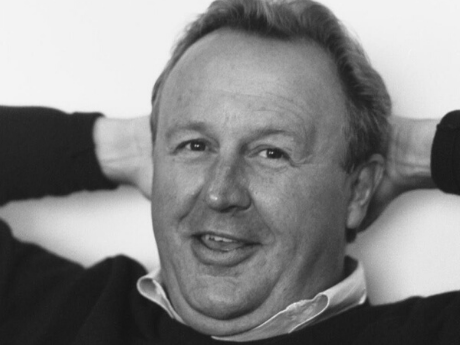Q & A: American Poetry
Q & A American Poetry: William Corbett

Are there essential ways in which you consider yourself an American poet?
Insofar as I am a poet of landscape, weather and consciousness who divides my life between Boston and Northern Vermont and writes in accents native to me, I am an American poet.
When you consider your own "tradition," do you think primarily of American poets?
Yes, but Chinese poetry in translation is part of my tradition.
Do you believe there is anything specifically American about past and contemporary American poetry? Is there American poetry in the sense that there is said to be American painting or American film? Do you wish to distinguish American poetry from British or other English language poetry?
The American language distinguishes American poetry from British, Irish, Australian, etc. poetry. Yes, there is an American poetry present in the work of Whitman, Melville, Dickinson, Moore, Ginsberg, Ashbery, O'Hara, Mayer, Palmer, etc.
Which historic poets do you consider most responsible for generating distinctly American poetics?
Whitman and Dickinson.
What import does regional poetry occupy in your sense of American poetry?
If it is good poetry then regional is a meaningless qualification. If it is regional rather than good then it is part of the mosaic.
What significance does popular culture possess in your sense of American poetry?
As much significance or as little as the poet cares to give it.
What about the American poets who lived primarily in Europe (Eliot, Pound, Stein)? What about the European poets who have recently lived or worked in America (Heaney, Walcott, Milosz)?
Pound and Stein are decidedly American. Eliot's "Four Quartets" sounds English to me, but who cares. It is great poetry. Auden, for all his years, somehow remained English. Perhaps because he was a prodigy and fully formed by the time he arrived in New York. But then Eliot was also a prodigy. Heaney—Irish. Walcott—the King's Caribbean English. Milosz? Who knows?
Are you interested in poetry written in America but not in English?
Yes.
Are you more likely to read a contemporary non-American poet who writes in English or a contemporary non-American poet translated into English?
Depends.
Do other aspects of your life (for instance, gender, sexual preference, ethnicity) figure more prominently than nationality in your self-identity as a poet?
It is hard not to be a man, but the language, which is nationality, is where the poetry is.
Do you believe you could readily distinguish a poem by an American poet from a poem by other poets writing in English?
Like a blindfold test in which I identify if that tenor player is black or white? I am sure I would get the nationality wrong. Such distinctions have little interest for me outside this questionnaire.
What do you see as the consequences of "political correctness" for American poetry?
Reams of timid bad poetry, but that is what comes when all but a few of us write.
Published 1999.


